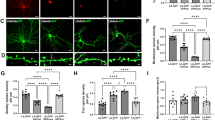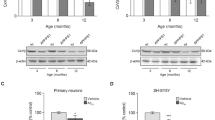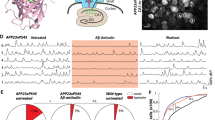Abstract
Amyloid beta protein (A[beta]) is well recognized as having a significant role in the pathogenesis of Alzheimer's disease (AD). The reason for the presence of A[beta] and its physiological role in non-disease states is not clear. In these studies, low doses of A[beta] enhanced memory retention in two memory tasks and enhanced acetylcholine production in the hippocampus in vivo. We then tested whether endogenous A[beta] has a role in learning and memory in young, cognitively intact mice by blocking endogenous A[beta] in healthy 2-month-old CD-1 mice. Blocking A[beta] with antibody to A[beta] or DFFVG (which blocks A[beta] binding) or decreasing A[beta] expression with an antisense directed at the A[beta] precursor APP all resulted in impaired learning in T-maze foot-shock avoidance. Finally, A[beta]1-42 facilitated induction and maintenance of long term potentiation in hippocampal slices, whereas antibodies to A[beta] inhibited hippocampal LTP. These results indicate that in normal healthy young animals the presence of A[beta] is important for learning and memory.
Similar content being viewed by others
Article PDF
Author information
Authors and Affiliations
Rights and permissions
About this article
Cite this article
Morley, J., Farr, S., Banks, W. et al. A Physiological Role for Amyloid Beta Protein: Enhancement of Learning and Memory. Nat Prec (2008). https://doi.org/10.1038/npre.2008.2119.1
Received:
Accepted:
Published:
DOI: https://doi.org/10.1038/npre.2008.2119.1



